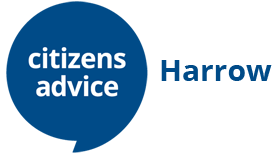Online shopping scams
Our Scams Awareness campaign in December 2024 will focus on online shopping scams. Its aim is to support consumers at risk of being affected as they shop in the January sales, as well as offering advice to those affected by scams related to shopping in the festive season.
The increased financial pressure many will be facing this winter has put more people into difficult situations, with many facing issues with debt and being unable to afford essential goods and services. We’ve seen time and again that scammers seek to exploit vulnerability, so empowering the public to protect themselves and others from scams will have heightened importance.
There are lots of different types of scams emerging. Some examples to look out for include:
- Sellers offering hugely discounted designer items or hard to come by items
- Free trials or ‘just pay for postage and packaging’ deals
Protect yourself from online shopping scams
- Check the website is genuine – Take a couple of minutes to watch the video provided by National Cyber Security Centre about shopping securely online
- If you do an internet search, don’t assume that the top listed company is the genuine one you are looking for. Sometimes these can be adverts or a very slight change in the company name you are looking for
- Check the domain name to get to the official page, and avoid sites that end in .net or .org – it is unusual for shopping sites to use these
- There should be a geographical address to return items, with details of the returns policy
- Don’t send money by bank transfer. Once you have sent a payment, it can be very difficult to trace and get it returned if there is a problem. Use a payment method that offers protection if there is a problem (such as PayPal, Apple pay, debit or credit card)
- Check in advance of using the website or online platform what their online dispute resolution process is
Top 3 messages
- There is a high chance that scammers will try to take advantage of people shopping online in the festive period or January sales. The increased financial pressure many will be facing this winter has made this more likely than ever, and so support around this issue is vital
- Anyone can fall victim to a scam. People of all ages and backgrounds get scammed. It’s important to be on your guard – if you’re not sure about something, take your time and get advice
- If you think someone might be trying to scam you, it’s important to act straight away. If you need advice and support you can call the Citizens Advice consumer service on 0808 223 1133 or visit www.citizensadvice.org.uk. You should also report scams or suspected scams to Action Fraud
Quick scam facts
What is a scam?
A scam is a scheme to try to steal money, personal information or data from a person or organisation. Other names for a scam include fraud, hoax, con, swindle and cheat.
General scams advice
Spotting a scam
It’s important to always keep an eye out for scams. They can and do affect anyone. Here are some of the main warning signs of scams to look out for:
- It seems too good to be true – like an email saying you’ve won a competition you don’t remember entering
- Someone you don’t know contacts you unexpectedly
- You’re being urged to respond quickly so you don’t get time to think about it or talk to family and friends
- You’ve been asked to pay for something urgently or in an unusual way – for example by bank transfer or gift vouchers
- You’ve been asked to give away personal information
If someone thinks they might be being scammed, they should get advice immediately. They can contact the Citizens Advice consumer service for help with what to do next, and report scams or suspected scams to Action Fraud.
How to protect yourself from scams
There are some simple steps people can take to help protect themselves from scams:
- Don’t be rushed into making any quick decisions. It’s okay to take your time
- If someone pressures you to send money or personal details, it’s most likely a scam. Never give money or personal details, like passwords or bank details, to anyone you don’t know or have only met online, and ask yourself why you would need to share this information.
- Before you buy anything, check the company or website you’re using. Read reviews from different websites, search for the company’s details on Companies House, and take a look at their terms and conditions
- Do not engage with cold callers or door-sellers offering too good to be true deals.
- Pay by debit or credit card. This gives you extra protection if things go wrong
- Be suspicious. Scammers can be very smart. They can appear like a trusted business or government official, have a professional website and say all the right things. Take your time to work out if this is a real organisation. Ask them for ID or contact the organisation on a number you know and trust
- Never open attachments or click on any links in messages if you’re not sure who the message came from or you don’t trust them.
- Some scams try to make you click links or open attachments that will install viruses on your device. A virus could let someone steal your personal information or take control of your phone or computer.
- Some other scams pretend to be from an organisation and try to make you click on a fake version of the website which asks for personal information.
- If you want to check your account is secure on the organisation’s official website, always open a new browser window or tab. You should type the address in the address bar. When you’re on the official website, log in directly.
- Make sure your antivirus software is up to date
- Keep your online accounts secure:
- Use a strong password for email accounts that you don’t use anywhere else. Choosing three random words is a good way to create a strong and easy to remember password. You can also add in numbers and symbols. If you’re worried about remembering lots of different passwords you can use a password manager
- Some websites let you add a second step when you log in to your account – this is known as ‘two-factor authentication’. This makes it harder for scammers to access your accounts.
- If you’re not sure about something, get advice from a trusted source
What to do if you have been scammed
If you have been scammed, there are 3 steps you need to take:
- Protect yourselves from further risks
There are things you can do to stop things getting worse. You should contact your bank immediately to let them know what’s happened. You should also change any relevant log-in details, and check for viruses if you were scammed on a computer.
- Check if you can get their money back
If you have lost money because of a scam, there might be ways you can get it back. Depending on the circumstances, you might be able to get your money back if you get in touch directly, and as soon as possible, with the method by which you’ve paid, such as card, Paypal, Direct Debit or bank transfer.
- Report the scam
Reporting scams helps authorities stop the criminals responsible, and protects others from being scammed. Anyone who’s been scammed should:
- Call the Citizens Advice consumer service on 0808 223 1133. We’ll pass on details of the scam to Trading Standards, and can offer further advice
- Report the scam to Action Fraud, the national reporting centre for fraud. They’ll also give you a crime reference number, which can be helpful if you need to tell your bank you’ve been scammed
It’s also important for us to all talk about our experiences with family and friends. By letting them know what’s happened they can be prepared, and together we can put a stop to scams.
Where to go for more help
- If someone has been scammed, or thinks they’ve been scammed, they can contact the consumer service by calling 0808 223 1133 (or 0808 223 1144 for a Welsh speaking advisor)
- You can also use our online scams helper to work out if something is a scam and see the next steps to take.
- There’s lot of advice on the Citizens Advice website at www.citizensadvice.org.uk/scamsadvice, including how to:
- You can check recent scams on Action Fraud’s website, and sign up for email alerts to find out about scams in your area at www.actionfraud.police.uk/news
Tajinder Nijjar, Chief Executive Officer of Citizens Advice Harrow, said: “Scams can affect anyone and it is important to know what to do if you have been scammed. The cost of living crisis continues to affect some Harrow residents and it is important we recognise the red flags during the sales season when shopping online. Follow the simple steps to protect yourselves during this festive season. Don’t feel embarrassed if things go wrong. Seek help immediately.”
For information and advice, contact Citizens Advice Harrow on 0808 250 5705.

